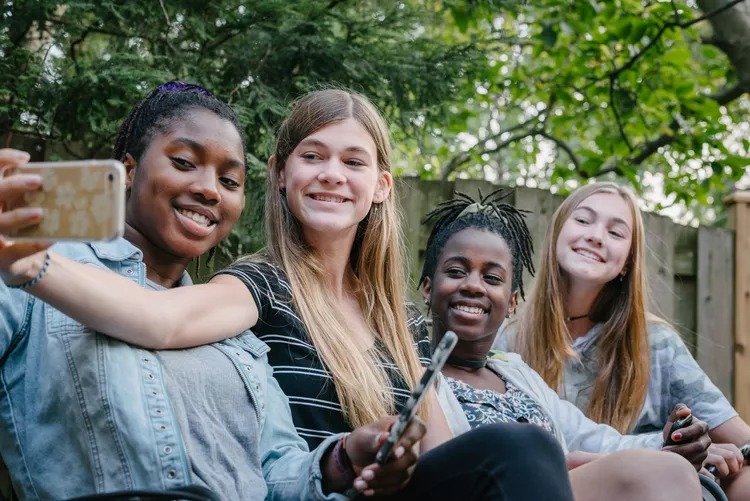Why It’s Never Too Early to Teach Your Child Good Social Media Habits

Source:https://www.parents.com/
Parents should not underestimate the importance of discussing social media with their younger children, especially as tweens approach the age of 13 when they can officially create accounts. U.S. Surgeon General Vivek Murthy argues that 13 is still too young, as kids are developing their identities and social media can distort their self-worth and relationships. He recommends delaying account creation until later in the teenage years, though many kids find ways to access social media earlier, often using fake birthdays.
Research shows a significant number of younger children are already on social media: 33% of kids ages 5 to 7 and about 60% of those ages 8 to 11 have accounts. This shift means that social interactions among younger kids may revolve around online content rather than traditional play. In response, the American Psychological Association (APA) has developed guidelines to help parents and children establish safer social media habits.
Guidelines for Safe Social Media Usage: To address the inevitability of social media use among teens and tweens, the American Psychological Association (APA) has developed 10 recommendations for parents and guardians. One key suggestion is to provide social media literacy training, similar to driver’s education, to help young people navigate these platforms safely. The APA emphasizes that social media use should be aligned with children’s developmental stages. For younger children, adults should closely monitor their activity and engage in discussions about the content they encounter. Additionally, tweens and teens should have limits on using social media for comparing beauty and appearance, and any signs of problematic usage should be monitored to ensure it doesn’t disrupt their daily lives.
Positives of Social Media for Kids: While social media can offer benefits like healthy socialization and creative expression for kids with parental consent, there are also significant risks, including exposure to cyberbullying and inappropriate content. The APA recognizes these positives but cautions that younger children may not fully understand the consequences of their online actions. In response to these concerns, Instagram has implemented several safety features, including a parental education hub, supervision tools, automatic private accounts for young users, and a “Take a Break” feature to limit excessive use. However, Instagram’s director of engineering, Eddie Ruvinsky, emphasizes that monitoring alone isn’t enough; fostering trust and open dialogue with children about their online activities is crucial.
Start Talking About Social Media Early: Ana Homayoun, a social media expert and author of Social Media Wellness, emphasizes the importance of parents starting conversations about social media early, even if their kids aren’t yet active on these platforms. She notes that many children are online from a young age, often learning about social media from peers rather than their parents. To ensure kids are well-informed, Homayoun encourages parents to take an active role in fostering discussions about social media use.
Make a Game Plan: Ana Homayoun advises parents to approach discussions about social media with curiosity, asking open-ended questions to help children reflect on their motivations for joining Instagram, envision a positive experience, and identify trusted adults for support if issues arise. She recommends using the three S’s—healthy socialization, effective self-regulation, and overall safety—as a framework for these conversations, encouraging children to think proactively about their online experiences.
Prioritize Privacy: Lori Malahy, Instagram’s research lead, highlights that many users aren’t aware they can make their accounts private, allowing only approved followers to see their content. This privacy setting can help protect personal information. Dan Zigmond, a former analytics director at Instagram, enforced privacy for his children by requiring them to have private accounts and know all their followers. Additionally, Instagram automatically sets up private accounts for teens.
Enforce Good Social Media Etiquette: Mean comments on social media can damage a child’s self-esteem and lead to trouble for those who write them. It’s important to discuss proper social media etiquette with your child and use tools from Instagram’s resource guide, such as filtering out offensive words in comments.
Set Time Limits: Tweens are still developing self-discipline, so it’s not unusual for them to spend hours on social media platforms. Work together to determine an appropriate amount of time they should spend on apps each day, whether it’s 15 minutes or one hour. You can also take advantage of Instagram’s Activity Dashboard, which lets you set daily time limit reminders, mute push notifications, and more.
Teach Kids Accountability: Cyberbullying is increasingly prevalent, with 16% of high school students reporting electronic bullying in the past year, especially among females and LGBTQ+ students. Instagram provides tools to combat bullying, such as removing hateful comments, reporting negative behavior, and blocking users. Ian Spalter, a former Instagram design director, emphasizes the importance of recognizing that online actions can impact people’s feelings in real life.
Practice What You Preach: You know that kids are sponges, and they’re constantly learning by example. By practicing positive social media habits yourself, you’re setting up your children for a rewarding and inspiring experience.
Image Source: https://www.parents.com/





